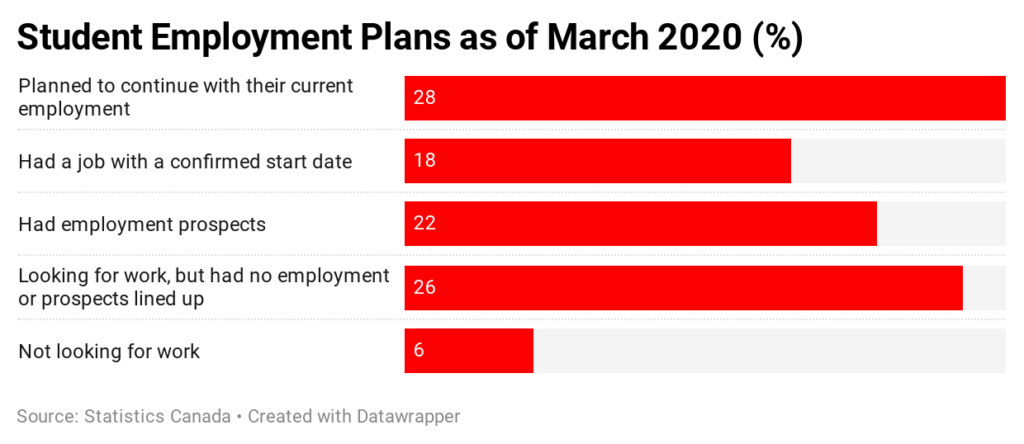Never before has it been more important to future-proof your career as it is today. In the time of Covid-19, three million people lost their jobs in Canada between February and April 2020, and postsecondary students were no exception.
Over 100,000 postsecondary students participated in an online crowdsourcing data collection survey by Statistics Canada. Among the students who planned to continue with their current employment at the beginning of March, 21 per cent lost their jobs while 34 per cent were laid off two months later. For participants who had a confirmed start date at the beginning of March, 31 per cent lost their jobs.
As concerns over job and financial security begin to grow, many wonder what steps they can take to secure their career.

How to Future-Proof Your Career?
Here are five ways we found to help you build a career that is future-proof, even in times of economic crisis.
1. Work Towards a Meaningful Career
The pandemic has been the source of many realizations, but if there is one thing that stands out, it is the temporary state of everything. So, instead of focusing on what the numbers say to be the most stable and high-paying job for the next ten years, we have to work on adapting our skills and capabilities in accordance with the current times.
However, meaning is a quality we still have to attach to our work in order to constantly adapt and grow. Research shows that people exert more effort into their work when they perceive it to be meaningful. If an employee is consciously pursuing meaningful work, they are less likely to call in sick and are very likely to participate in training programs to improve their skills.
2. Lifelong Learning
The willingness to improve and diversify your skills is very important today. Richard Gahagan, CEO and founder of the We Are Adam recruitment agency, says that to be employable people should focus not only on the skills needed now, but also on the skills required in the future.
“The lifespan of a career is changing and people are beginning to learn that employability is now about knowing how to manage a diverse number of jobs,” he told The Guardian.
So, despite how linear college and university may be, careers are not. Therefore, it is important to be employable by constantly learning new information and gaining new skills despite how old you are or what stage you are in your career.
3. Embrace Technology
We can never deny how much technology has changed how we work and shaped how we live. As society continuously evolves through technology, so should we, regardless of our age or preferences. Taking a few minutes everyday to accustom ourselves to new ways of working with technology can make the difference between being employed or not.
4. Work Remotely
If your career prospects have been impacted by Covid-19, then you may want to look into doing remote work. Keeping a network of remote or freelance work can be a safety net in case of an unexpected employment termination or other hurdles you may face in your career.
5. Build Your Professional Network
A professional network of contacts can help you become fluid in the ever-changing job market. As many transition from being an office worker to a freelancer, full-time to part-time, or move from one city to another, knowing people can help you gain more connections that can lead to better opportunities for your career.
Almost every field of work whether it be business, technology or healthcare can now provide you ample room to grow, the flexibility to work remotely and a meaningful career. So, start researching what works best for you and get to work!
About The Author

Private Career College
ABM College is a leader in career-focused education, committed to empowering students with industry-relevant skills. With expert instructors and practical training, ABM College delivers high-quality programs in health, business, technology, and more, ensuring graduates are prepared to meet workforce demands. Known for its supportive learning environment and a focus on real-world application, ABM College is a trusted educational partner helping students achieve professional success across Canada.
